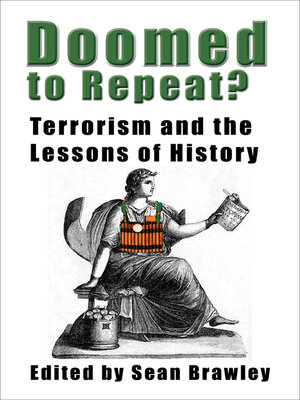
Sign up to save your library
With an OverDrive account, you can save your favorite libraries for at-a-glance information about availability. Find out more about OverDrive accounts.
Find this title in Libby, the library reading app by OverDrive.



Search for a digital library with this title
Title found at these libraries:
| Library Name | Distance |
|---|---|
| Loading... |
This collection of scholarly essays explores the role of history in terrorism studies and today's counterterrorism initiatives.
In Doomed to Repeat?, scholars, policy makers, and other practitioners explore how a better understanding of the past can help us combat terrorism in the future. The first section establishes a broader context for discussion by examining the connections between history and Terrorism Studies. The second section presents the insights of non-historians who know the importance of historical perspective in understanding current events. Section Three provides case studies that explore the history of terrorism and politically motivated violence. Section Four concludes by placing concerns about terrorism in regional and foreign policy context.
"This collection helps us advance our understanding of terrorism beyond simplistic and dichotomist assertions about "them" and "us." Taken together, these essays highlight the importance of analyzing, rather than assuming." —Chris Dixon, Professor, School of History, Philosophy, Religion, and Classics, The University of Queensland, Australia
In Doomed to Repeat?, scholars, policy makers, and other practitioners explore how a better understanding of the past can help us combat terrorism in the future. The first section establishes a broader context for discussion by examining the connections between history and Terrorism Studies. The second section presents the insights of non-historians who know the importance of historical perspective in understanding current events. Section Three provides case studies that explore the history of terrorism and politically motivated violence. Section Four concludes by placing concerns about terrorism in regional and foreign policy context.
"This collection helps us advance our understanding of terrorism beyond simplistic and dichotomist assertions about "them" and "us." Taken together, these essays highlight the importance of analyzing, rather than assuming." —Chris Dixon, Professor, School of History, Philosophy, Religion, and Classics, The University of Queensland, Australia







